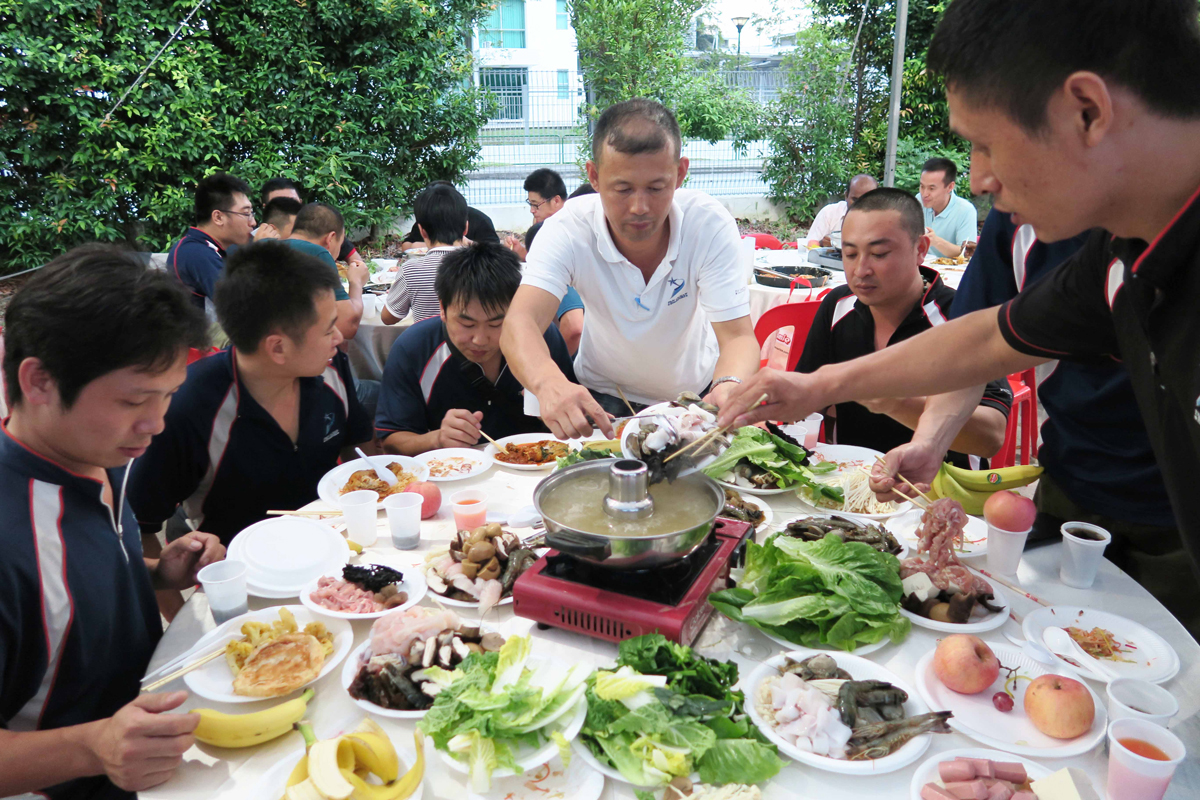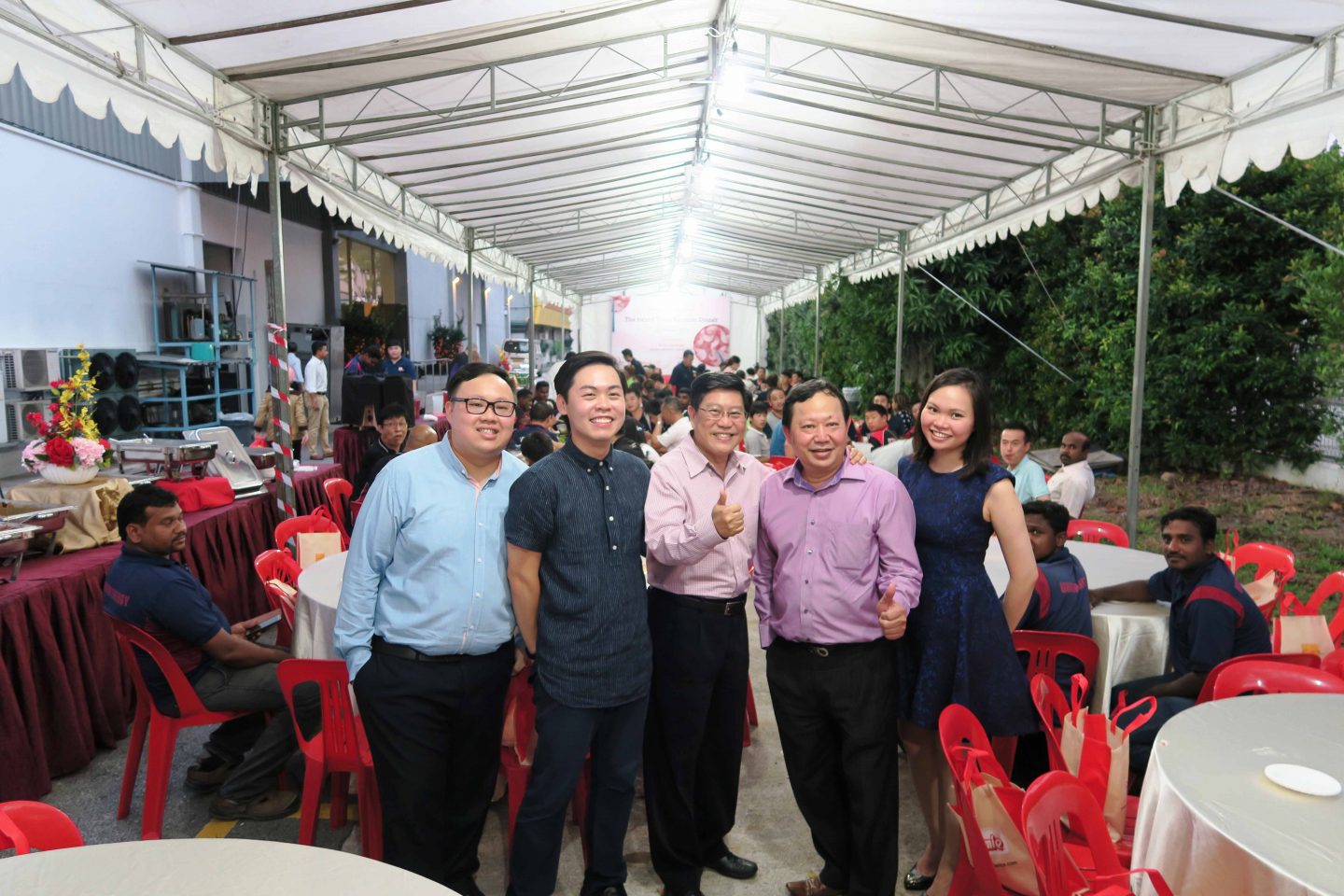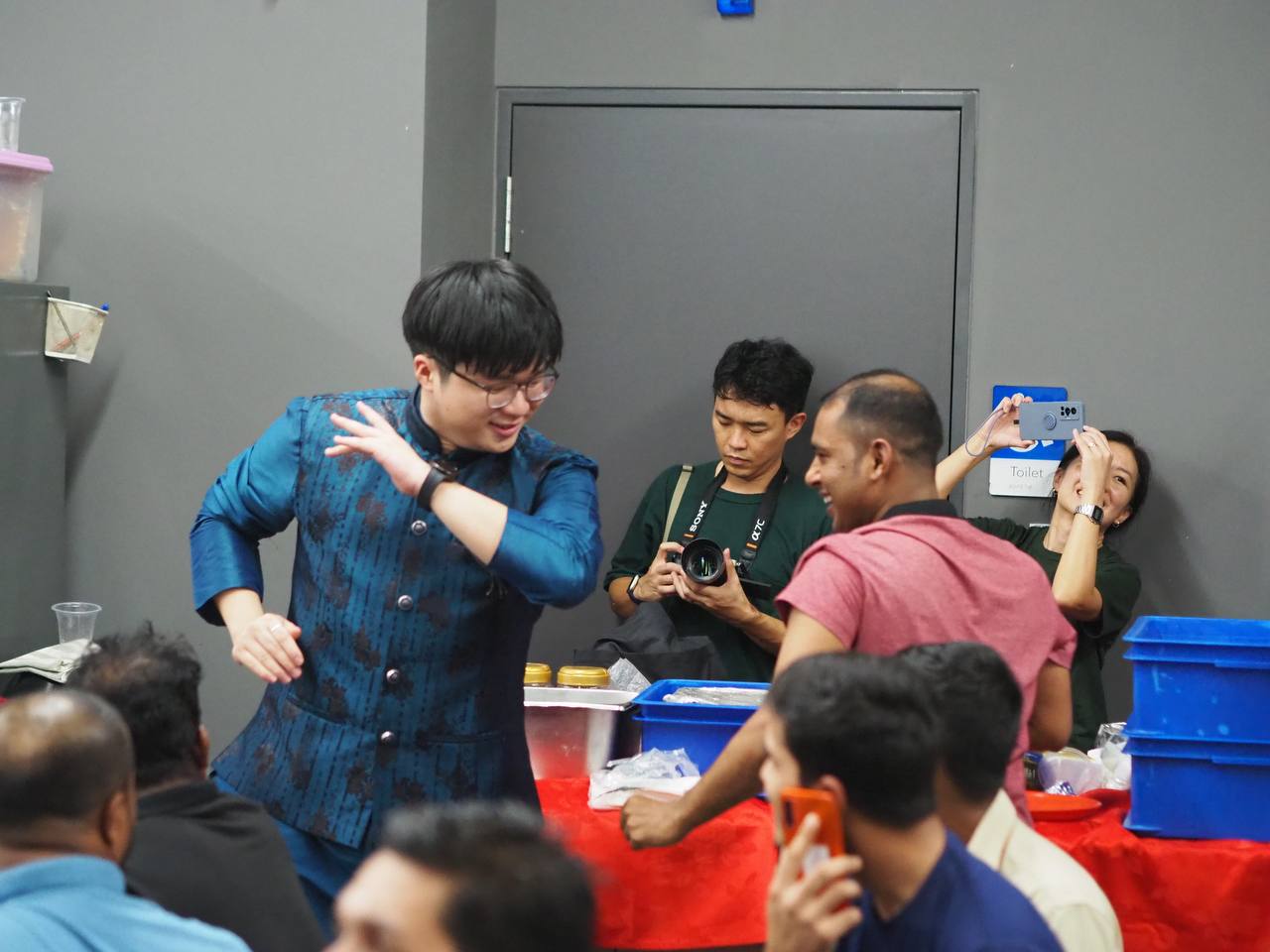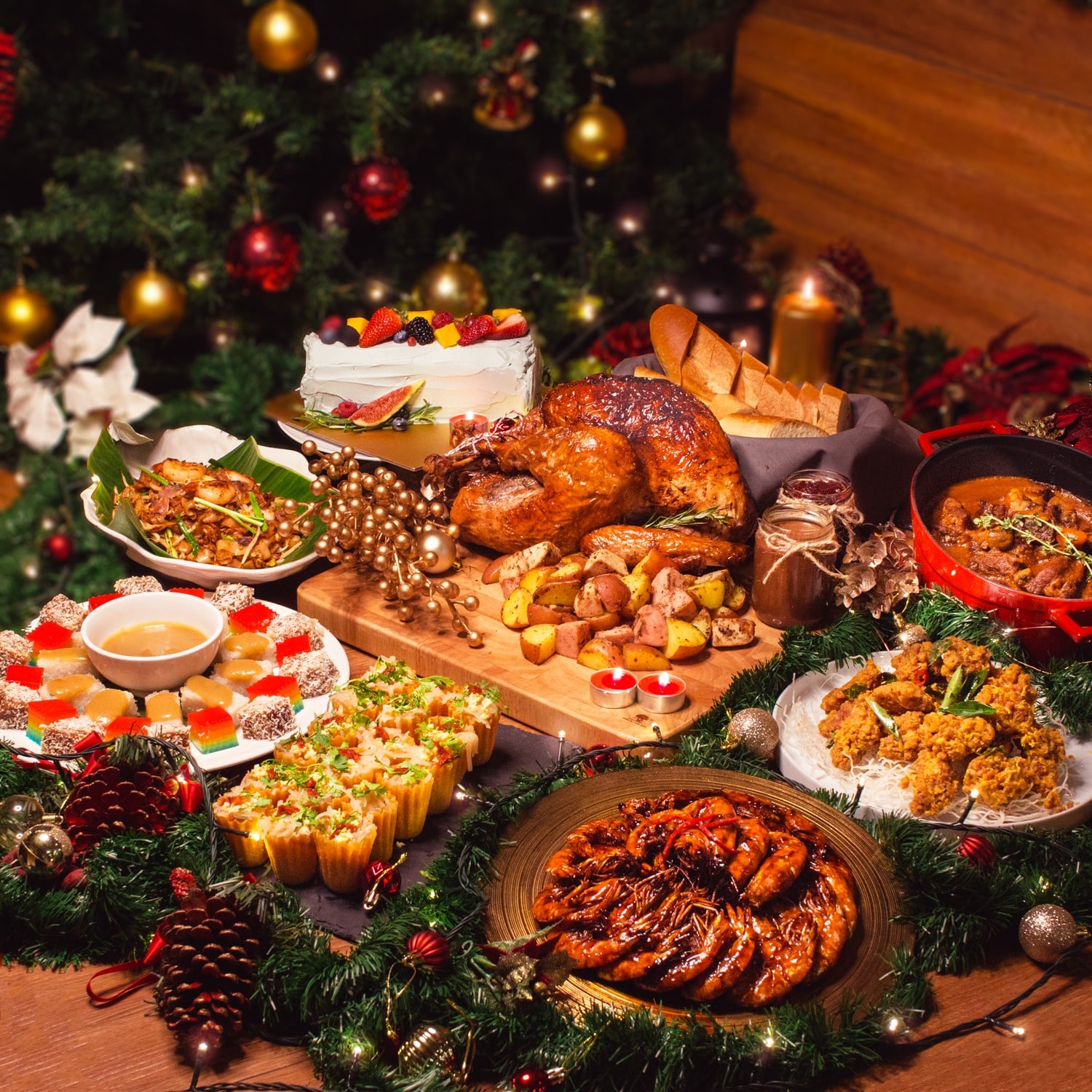Elsie’s Kitchen announces plans for sustainable catering
by Karen Tan // April 22, 2018, 12:41 am

Celebrating Lunar New Year with a reunion dinner for migrant workers at Hesed Table.
Each year on April 22, the world marks Earth Day to celebrate the planet we live in. The day rolls into our calendars on cue and is ushered out just as quickly.
Meanwhile we complain about rising temperatures, and are even quicker to criticise governments for not doing more.
“People are increasingly conscious of how their actions impact the environment. It’s a good change.”
Developed and developing nations expect each other to play a bigger role but won’t budge their stance. The ratification of the Kyoto Protocol is a case in point.
Valuing creation
While the buck is being passed around, Reuben Ang, 31, has decided that if it must stop somewhere, it will be on his plate.
The Managing Director of Hesed & Emet, (parent company of food caterer, Elsie’s Kitchen) concedes that efforts to solve planet earth’s woes loom much larger than him or his company, but that’s not stopping him from taking the first step towards eco-consciousness.
The company is one of the only local caterers to offer sustainable catering. Ang’s rationale is more than just a quest to save the earth – it is also about sustaining and valuing what the Creator has given.

Reuben Ang (extreme left) with family members who are also part of Hesed & Emet’s management team.
Eating responsibly
Ang reveals that their brand, Continental Delight, is releasing a new menu that will be more focused on locally sourced foods.
“It will target clients who are willing to explore sustainable food sources. People are increasingly conscious of what they do, and how their actions impact the environment around them. It’s a good change and I think that it’s a matter of time that this becomes a norm.”
This food-solution company also has its attention turned to the food surplus that is wasted in the upstream, where perfectly edible food produce gets trashed either because of the lack of storage space or that they don’t look as good as they should.
“The work on the cross means that all things that were affected by the fall of man, will be reconciled back to God. That includes planet earth.”
The company recognises this as an untapped area that can provide a sustainable food solution, and has established a social arm, Hesed Table, with plans to make better use of this food source.
“We have explored processing edible perishables that would have been thrown out,” says Ang. “We intend to use that to cook and distribute food to segments where there is a nutrition deficit.
“It will cost us some money, but we will collaborate with suppliers who have supported such initiatives before. We have done a few runs and distributed food to migrant workers and some shelters.
“We will push out the menus when they are ready as we want something more sustainable and regular, not just a one-off CSR (corporate social responsibility) project. We want to make a change through food.”
Ang feels the urgency of “participating in the forward momentum that started with Christ and his victorious death. This is part of faithful living to be part of the forward momentum. There is no turning back”.
A flourishing kingdom
Being a small country with limited natural resources, it is inevitable for Singapore to import most of her food globally. With growing affluence, Singaporeans are enjoying the luxury of choosing what they want to eat, when they want, in and out of season. Food is procured from all over the world, resulting in a heftier carbon footprint.
Most people are unaware of the damage.
Working with his family company since his youth, Ang is introspect about Singaporeans’ eating habits: “Many are not interested where their food comes from as long as it is cheap. The whole macroeconomic structure that favours cost has diminished the value of caring for the environment.”
People gravitate towards cheaper Styrofoam than cornware, and favour inexpensive frozen chicken from South America versus pricier poultry slaughtered locally. These decisions do weigh on the health of the environment. Something has got to give.
“Eating responsibly is part of faithful living and is part of the forward momentum. There is no turning back.”
“It is important for us to encourage Singaporeans to eat local or food sourced from nearer home. We can let people know where the food comes from, explain the price difference and the ecological impact.
“I try to tease out what my clients’ requirements are. If they are open, I suggest and encourage them to think ecologically. Increasingly, people are more receptive and conscious of how their actions impact the environment. Although the number may be limited, we know that we are making headway.
“As Colossians 1:20 tells us – through the death of Christ on the cross, everything is reconciled back to God. All things that were affected by the fall of man will be reconciled back to God. That includes planet earth.
“Reconciling is about mending and seeking that shalom of the holistic well-being of all. The Bible also has this imagery of the flourishing of God’s Kingdom. The growing of that mustard seed into a flourishing tree is like the Kingdom which has come, still coming and will come.”
Be fed physically and spiritually
Have a taste of the sustainable menu as Reuben Ang introduces his food at God’s Purpose for His World Conference, organised by BGST.
We are an independent, non-profit organisation that relies on the generosity of our readers, such as yourself, to continue serving the kingdom. Every dollar donated goes directly back into our editorial coverage.
Would you consider partnering with us in our kingdom work by supporting us financially, either as a one-off donation, or a recurring pledge?
Support Salt&Light



